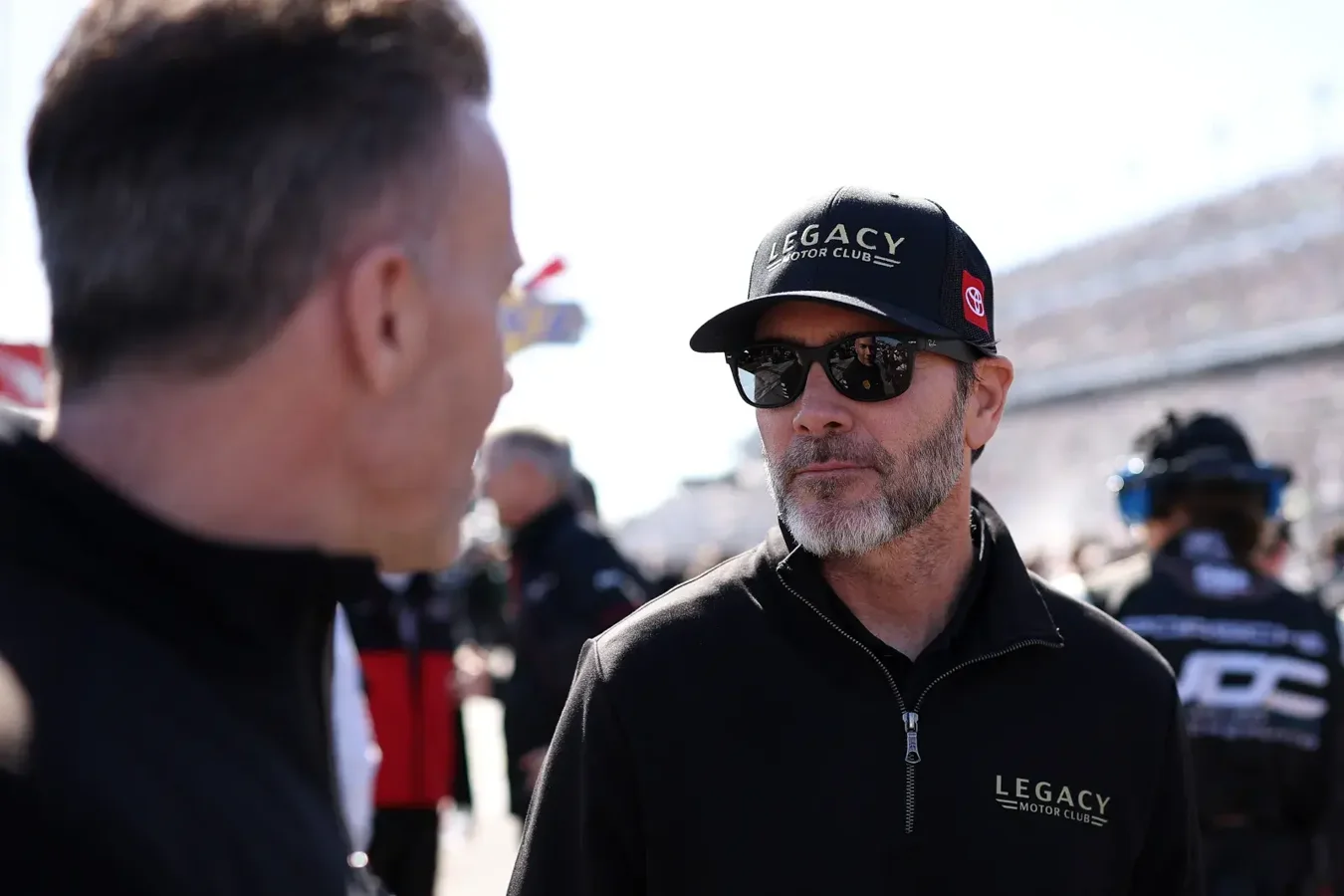Jimmie Johnson‘s Legacy Motor Club has resolved a major legal battle over a NASCAR charter with Rick Ware Racing, marking a turning point in the ongoing Jimmie Johnson charter dispute. The settlement, finalized on September 19, 2025, in North Carolina, secures a new charter for Johnson’s team and enables significant expansion for the upcoming season.
Legal Battle Over Valuable NASCAR Charter Comes to an End
NASCAR charters have become increasingly coveted in recent years, leading to fierce negotiations, legal disputes, and uncertainty among team owners seeking stable futures in the sport. This latest saga began in April 2025, when Legacy Motor Club, led by seven-time series champion Jimmie Johnson, filed suit against Rick Ware Racing. The case focused on a contested agreement for one of RWR’s two charters, originally believed by Johnson’s team to guarantee an immediate transfer.
Rick Ware Racing disputed that claim, stating the agreement pertained to the 2027 season and cited a connection to a specific charter temporarily leased to RFK Racing. Legal tensions mounted as each side filed countersuits and sought restraining orders, reflecting the enormous stakes tied to these charters, which are essential for guaranteeing entry into races and for team stability.
The conflict escalated to the point where a North Carolina judge denied Legacy’s request for a preliminary injunction, placing pressure on both Legacy and RWR to resolve the matter outside of court. Public anticipation built as fans, sponsors, and stakeholders wondered how the dispute could shape the 2026 season and beyond.
Mutual Agreement Reached Between Johnson and Ware
Through continued negotiations, both sides reached a settlement less than four months before a scheduled January 2026 trial. The agreement specifies that Rick Ware Racing will sell and transfer one of its charters to Legacy Motor Club, allowing Johnson’s organization to compete with three full-time teams from the start of the 2026 NASCAR season.
The resolution came after private discussions between Jimmie Johnson and key stakeholders, including Cal Wells and Rick Ware himself. Legacy Motor Club maintained that the original arrangement was always meant to take immediate effect, but both teams ultimately chose a path that avoided further court proceedings and the associated costs and distractions.
Reflecting on the outcome, Jimmie Johnson stated,
“Reaching a positive outcome was important for everyone involved. I truly respect the effort put forth by Robby Benton and Rick Ware to reach a settlement so we may all focus on our business operations and future goals. I’m glad this is behind us and we can all move forward in unison.”
– Jimmie Johnson, Legacy Motor Club Co-Owner
Rick Ware offered his perspective on the agreement:
“I met with both Jimmie (Johnson) and Cal Wells recently, and we came to an agreement to sell and transfer a charter from RWR to Legacy Motor Club. I believe we landed in a mutually beneficial place for both teams, and the result will be a clear path forward for us all.”
– Rick Ware, Rick Ware Racing Owner
Implications for Both Teams and the NASCAR Landscape
The deal is set to reshape both organizations. With the settlement concluded, Rick Ware Racing will be able to concentrate its resources on the No. 51 car piloted by Cody Ware, streamlining operations and allowing for renewed focus after months of uncertainty. Meanwhile, Legacy Motor Club gains a vital asset for its racing future, building out a stable that includes drivers Erik Jones and John Hunter Nemechek.
Although the terms of the settlement remain confidential, industry observers estimate the value of a NASCAR charter could approach $100 million, given the rare and strategic nature of these assets. The decision to reach an agreement outside of court not only marks an end to the immediate Jimmie Johnson charter dispute but also reflects a broader trend in the sport where teams are increasingly willing to engage in significant legal and financial maneuvers to secure their positions.
Looking ahead, this acquisition raises questions about whether Jimmie Johnson’s Legacy Motor Club could emerge as a force on the NASCAR circuit, leveraging new resources and driver talent. For NASCAR as a whole, the situation underscores the growing significance of charters, stability, and business negotiations in shaping the league’s competitive balance and team strategies.
In the coming months, fans, sponsors, and teams will be watching closely to see how Legacy Motor Club capitalizes on this opportunity. The outcome of this high-profile dispute could set precedents for how team ownership, legal disputes, and business strategy intersect in the fast-evolving world of NASCAR racing.
